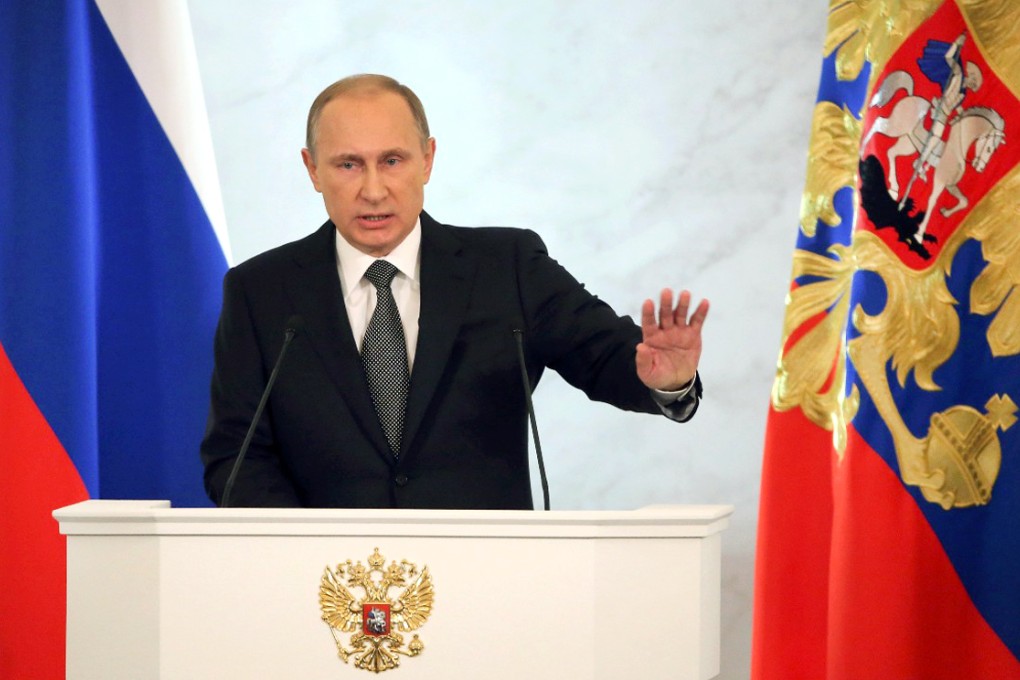Putin defends Russia’s foreign policy in state-of-the-nation address
Russian President Vladimir Putin evoked religious imagery and defended the Kremlin's aggressive foreign policy as necessary for his country's survival.

In a speech ranging from the economy to school tests, Russian President Vladimir Putin yesterday evoked religious imagery and defended the Kremlin's aggressive foreign policy as necessary for his country's survival.
Russia annexed Ukraine's Crimean peninsula in March after the ousting of pro-Russian president Viktor Yanukovych and was accused of sending ammunition and manpower to pro-Russian separatists in eastern Ukraine.
Putin in his annual state-of-the-nation address at the Grand Kremlin Palace defended the annexation of Crimea, describing it as Russia's spiritual ground, "our Temple Mount", and said that national pride and sovereignty were "a necessary condition for survival" of Russia.
"If for many European countries, sovereignty and national pride are forgotten concepts and a luxury, then for the Russian Federation a true sovereignty is an absolutely necessary condition of its existence," he told a full room of Cabinet ministers, lawmakers and community leaders.
"I want to stress: either we will be sovereign, or we will dissolve in the world."
More than 4,300 people have been killed in eastern Ukraine in what the West and the Ukrainian government says is a conflict fuelled by Russian money.